You’ve probably heard about sulfate-free shampoo, but what about other haircare products, like conditioner? Is sulfate-free conditioner something you have to worry about?
The truth is that sulfates are actually very common—not just in shampoos, but also in conditioners, other personal care products like toothpaste and hand wash, as well as detergents and cleaning products.
Table of Contents
Does Conditioner Contain Sulfates?
Most conventional conditioners DO contain sulfates, just like most conventional shampoos do. The sulfates in conditioner may be of a different variety and may be formulated differently in order to ADD oil to your hair instead of take oil away (like shampoo does), but the potential problems that sulfates pose are the same.
If you want more of a deep dive into the most common sulfates like SLS and SLES, check out this article. But we’re also going to go through the basics again for you here.
This post may contain affiliate links, which means we may earn a small commission if you choose to make a purchase. We only make recommendations that are genuine and meet our ingredient/material safety standards.
What is SLES?
SLES is one of the most common sulfates used today. It stands for Sodium Laureth Sulfate.
To make SLES, a related chemical called Sodium Lauryl Sulfate (or SLS) is put through a process called ethoxylation.
SLES (along with other sulfates) are surfactants, or “surface acting agents.” Surfactants lower the surface tension of water in order to help products clean and lather. They also help to keep other ingredients in a product mixed together properly and are also used as emulsifiers and thickeners.

Is SLES Safe? SLS and SLES Side Effects
You’ve likely heard of sulfates before; they don’t exactly have the best reputation. But WHY, exactly, have sulfates like SLS and SLES become so notorious?
Let’s start with SLS. Some of the rumors about SLS are true, and others aren’t. There is no current evidence that it causes cancer or blindness (especially when used at recommended concentrations).
SLS, however, IS a known irritant. In fact, it’s often used in research to induce skin irritation in study participants. For this reason, SLS should only be used in certain concentrations and shouldn’t be left on the skin for long periods of time. (This is why you likely won’t find sulfates in products you leave on your skin, like lotion.)
But even at low levels, SLS can still be irritating and drying to your skin and hair. It can be especially difficult for those with sensitive skin, eczema, and brittle hair. If you have color-treated hair, the sulfates can strip the color from your hair.
SLES was introduced as a milder surfactant that causes less skin and hair irritation, which sounds good, right? Well SLES presents a different (and arguably worse) problem than SLS.
Remember that ethoxylation process we talked about, where SLS is turned into SLES? Well, the process involves ethylene oxide and 1,4-dioxane, two chemicals that can cause serious health issues. Ethylene oxide is known to cause multiple types of cancer and infertility, and 1,4-dioxane is a carcinogen.
As an end product, SLES can be contaminated with these two chemicals; however, because they’re not added intentionally, they would never be listed on the ingredient list.
So even though SLES might be less irritating on the skin in the short-term, it carries much more serious risks and side effects. This is why many people choose to just avoid sulfates altogether.
[ Related: What Is Sodium Laureth Sulfate In Shampoo? Is It Bad for Hair? ]

SLS vs SLES vs ALS vs SDS vs SCS
Okay, that’s a lot of acronyms. But all of those letters above stand for the most common types of sulfates. Let’s briefly go through each one so you have an idea of the difference:
- SLS: Stands for Sodium Lauryl Sulfate. Known irritant.
- SLES: Stands for Sodium Laureth Sulfate. Milder than SLS when it comes to irritation, but can be contaminated with chemicals that cause cancer and infertility (due to the process it goes through to make it).
- ALS: Stands for Ammonium Lauryl or Laureth Sulfate. May be less harsh than SLS, but still has potential to be irritating and drying. Ammonium Laureth Sulfate comes with the same risks as SLES (cancer, infertility) because it also goes through the ethoxylation process.
- SDS: Stands for Sodium Dodecyl Sulfate. Another name for SLS.
- SCS: Stands for Sodium Coco Sulfate. This is an important one to note because it’s often used by brands that market it as a “greener” and “safer” alternative to SLS and SLES. Although it IS derived from coconut oil, it often contains up to 50% coconut-derived SLS. So, products that use SCS aren’t necessarily entirely SLS-free. They can still be problematic for your skin and hair.
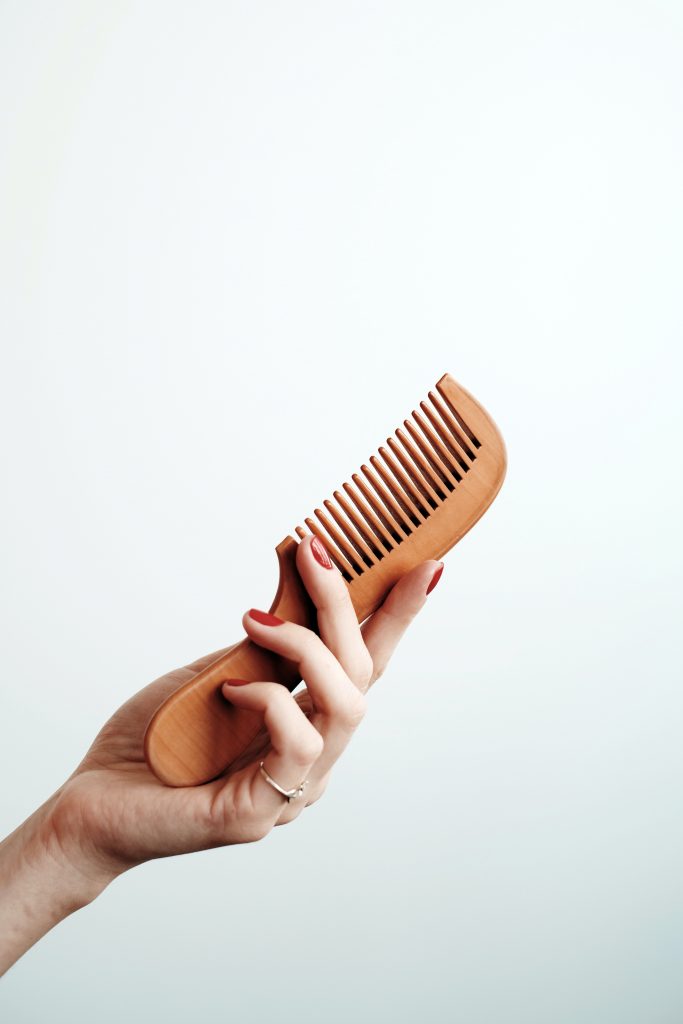
Do You Need to Use Sulfate-Free Conditioner?
Although we recommend sulfate-free shampoo and conditioner for pretty much everyone, those who should especially consider ditching the sulfates in their haircare routine are those with:
- Curly or frizzy hair
- Dry, brittle, or damaged hair
- Fine, thin, or aging hair
- Color-treated hair
- Sensitive skin
- Otherwise delicate hair or skin
How Do I know If My Conditioner is Sulfate-Free?
Unfortunately, sulfates are so ubiquitous that unless it’s labeled as “Sulfate-Free” on the bottle or website product page, it’s probably got sulfates in it.
You can always check the label to see if you see any ingredients with the word “sulfate” in it. In addition to the ones listed above, there are a lot of other names for sulfates that you may want to look out for.
[ RELATED: What’s the Deal With DMDM Hydantoin in Shampoo? ]
What Conditioners Are Sulfate-Free? (Our Recommended Best Brands)
Before we list our recommendations, there’s one more thing to note about sulfate-free conditioners and shampoos. JUST because a certain brand labels its shampoo or conditioner as sulfate-free does not mean it’s completely safe from all potentially harmful chemicals. A haircare product can be sulfate-free but still include problematic ingredients like parabens, formaldehyde, etc. Popular “greener” brands like Aveeno and Love, Beauty, Planet carry sulfate-free shampoo and conditioner that still contain some moderately questionable ingredients.
Annmarie

- Comes with a 30-day money-back guarantee
- MADE SAFE certified
- Vegan & cruelty-free
- Heavy focus on the use of botanicals
- Made in the U.S.A.
Public Goods

- Vegan & cruelty-free
- Made in New Jersey
- Comes in a bottle made with sugar cane and available in refills for less waste
Beautycounter Daily Conditioner

- Vegan & cruelty-free
- Has a luxurious mimosa scent
Foxie

- Vegan & cruelty-free
- Handcrafted in Nashville, TN
100% Pure

- Comes in a variety of scents and hair needs (like volumizing, hair growth, and repair)
- Burdock & Neem is recommended for dandruff relief
- Vegan & Cruelty-Free
- Some formulations are made in the USA
Melanin Haircare

- Can be used seven different ways: as a pre-shampoo, a detangler, a conditioner, a deep conditioner, a leave-in conditioner, a styling cream, and to rehydrate your hair throughout the week
Non-Toxic, Sulfate-Free Shampoos & Conditioners Available in Big Box & Drug Stores
If you don’t want to purchase online, here are the best non-toxic haircare brands we recommend that you can find in stores like Target, Walmart, Walgreens, CVS, and others.
Honest
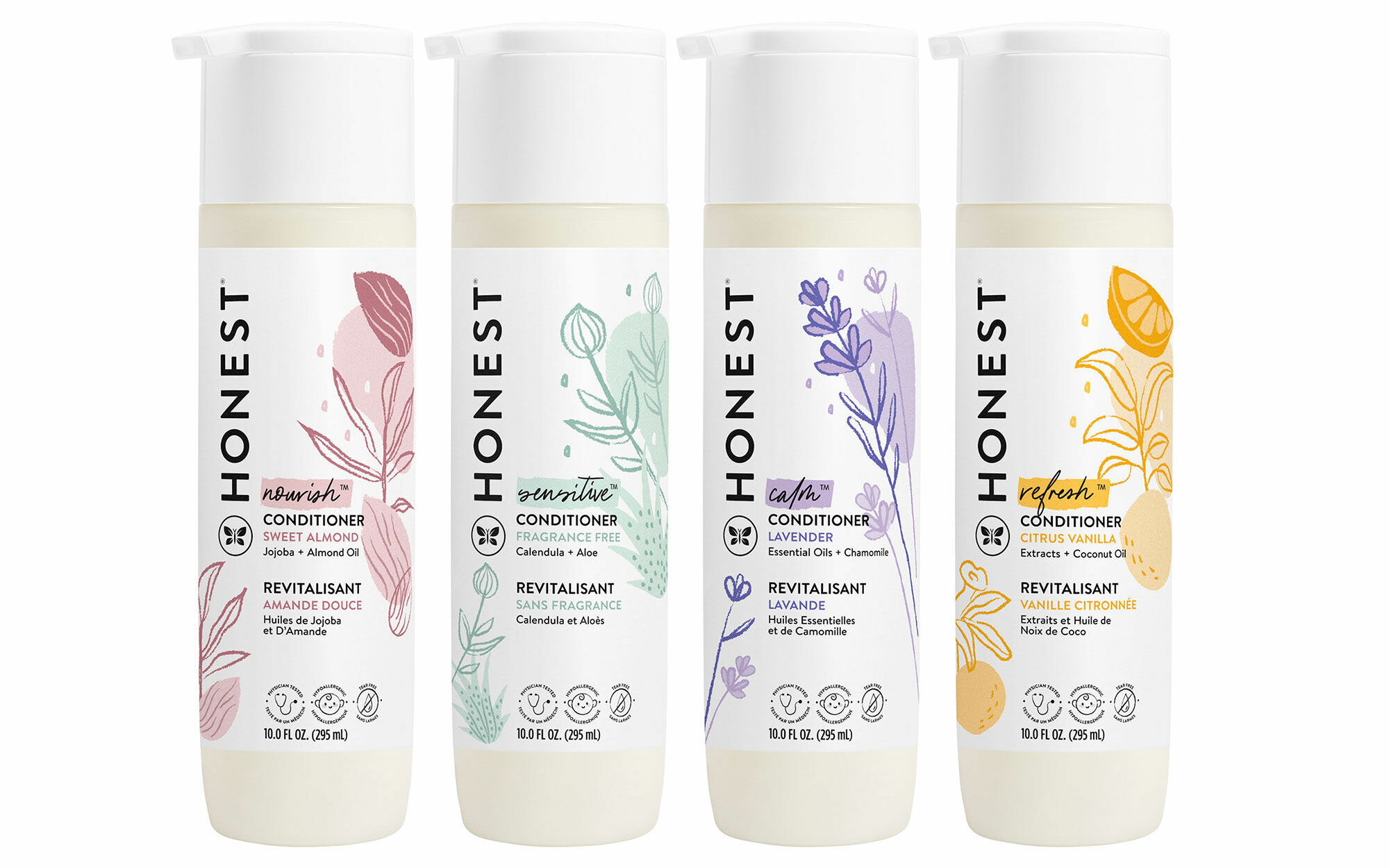
- Comes in a variety of scents (Sweet Almond, Sweet Orange Vanilla, Lavender, and Fragrance-Free)
- Tear-free and suitable for babies and kids
- Made in the USA
- Not Tested on Animals and No Animal Byproducts
- Learn more about Honest here.
Acure

- Ultra Hydrating Conditioner is good for dry, damaged, and curly hair
- Curiously Clarifying Conditioner is good for all hair types
- Vegan & cruelty-free
Jason

- Vegan & cruelty-free
- Comes in many different scents and hair/skin needs
- Available at big box stores like Target
Conclusion
At the end of the day, whether or not you switch to sulfate-free conditioner is up to you. Some sulfates may not be quite as bad as their reputation says they are, but they do come with potential downsides. That’s why we recommend swapping out your conventional conditioner with one of the safe, non-toxic, and sulfate-free brands listed here!
PIN IT:
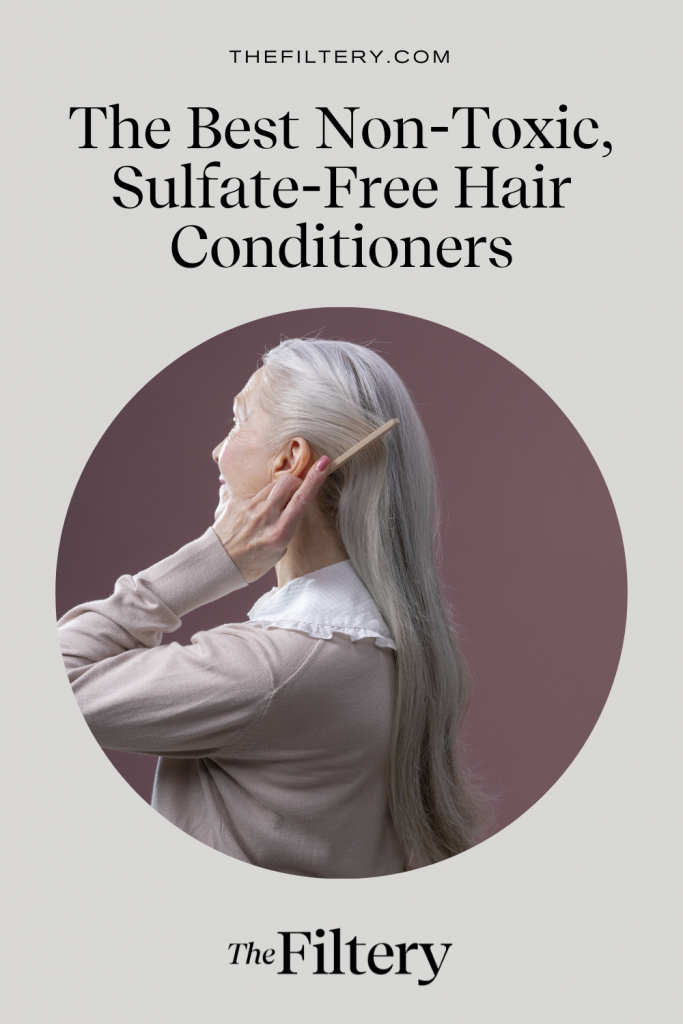
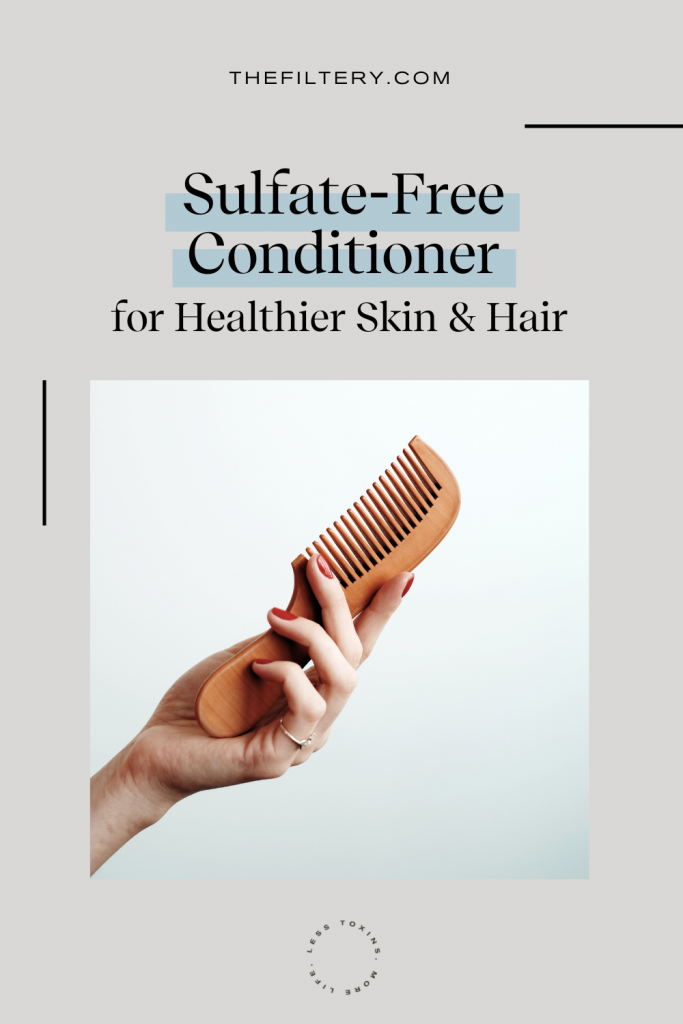


Image credits: Andrea Davis, cottonbro, Vie Studio, product photos belong to respective brands

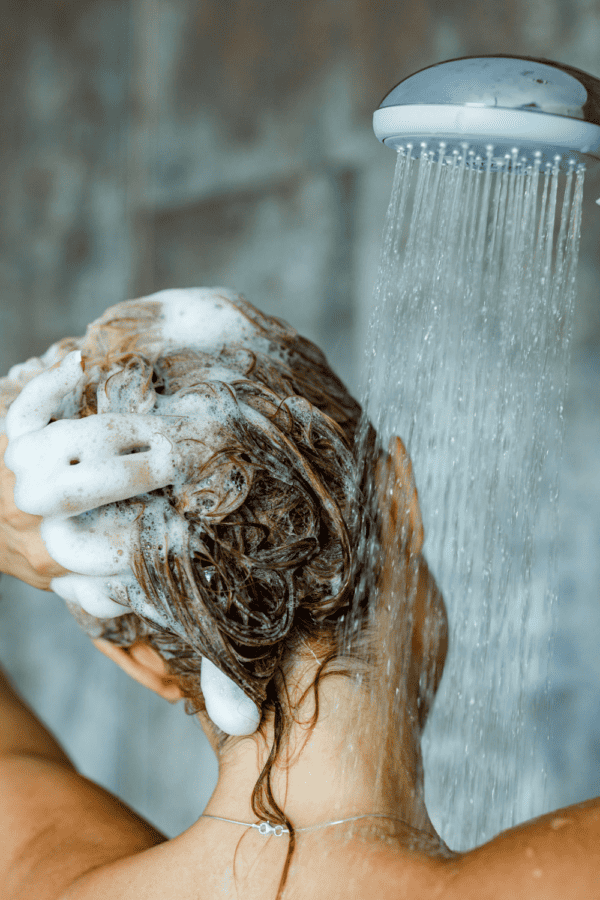
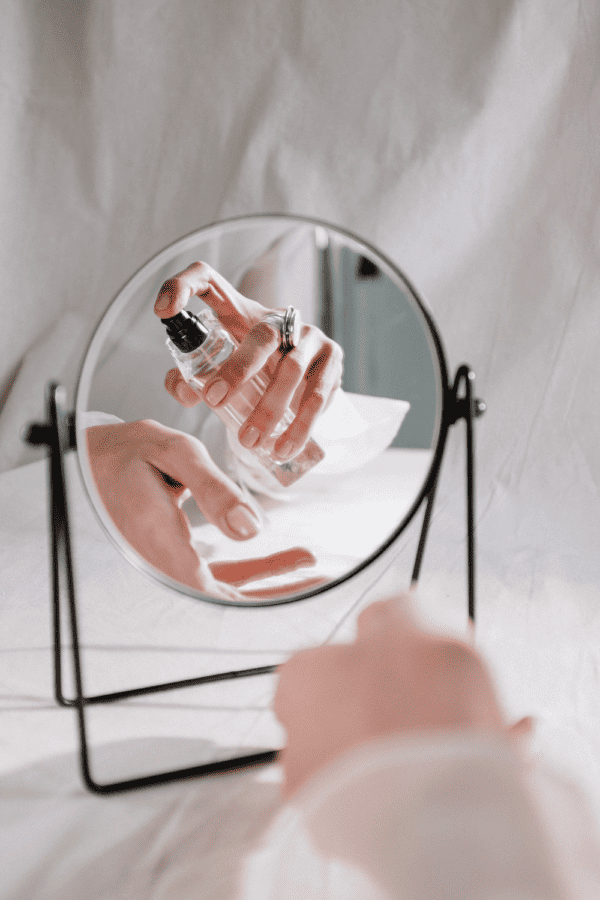
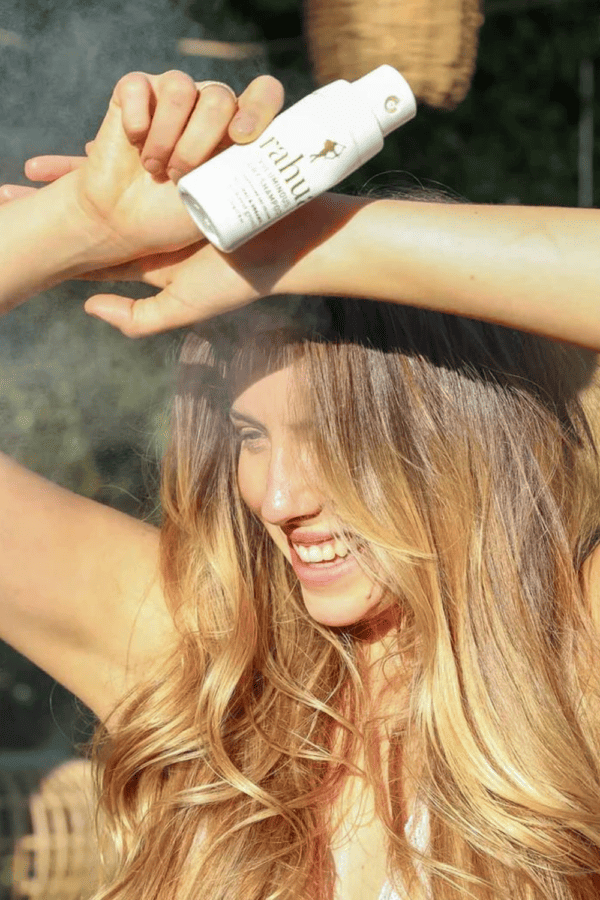
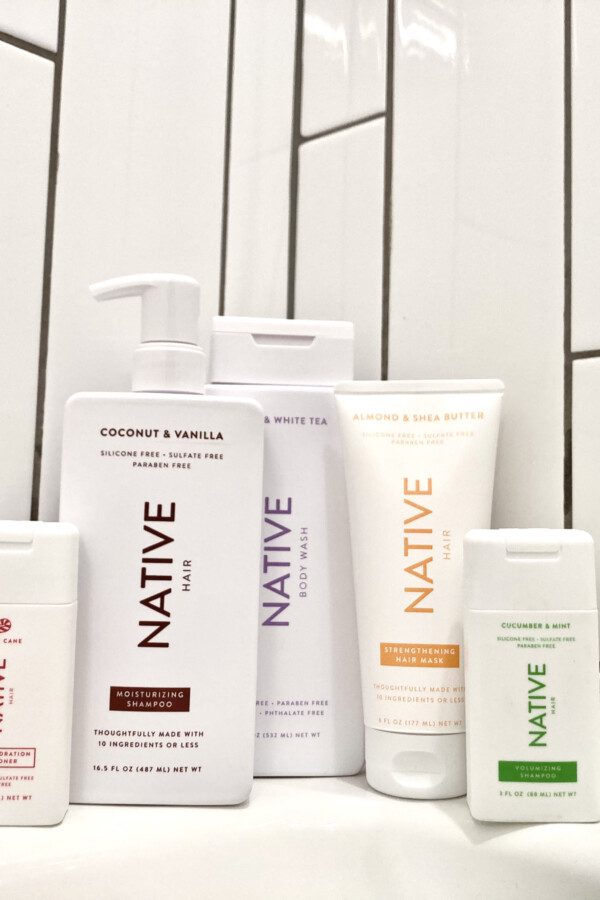
Also, would you ever consider DIY, make your own organic shampoo? Love to hear your thoughts. Thanks!
Definitely! I personally haven’t tried making my own shampoo before, but it’s a great idea for a future article. Here are a few recipe ideas you could possibly try in the meantime:
https://wellnessmama.com/3701/homemade-shampoo/
https://it-takes-time.com/2015/08/10/diy-shampoo-bar/
https://raiasrecipes.com/2016/07/easy-diy-shampoo-oily-hair.html
Which do you think is best bang for you buck/last longest? Do you ever see any bulk sales, or any sales for any of these items? Thanks!
Hi Diana! For best bang for your buck, I would say Public Goods. It’s a very affordable brand, and you can also buy conditioner refill bags to cut down on both price and waste.
In terms of sales, I probably see Honest go on sale the most out of all of these brands (although it doesn’t look like they have a sale going on right at this moment).